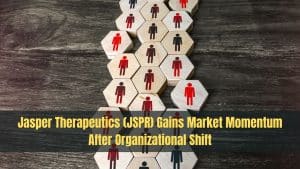Immix Biopharma, Inc. (IMMX) experienced an increase of 5.58% in the premarket after the company announced positive IMX-110 Phase 1b/2a Interim Clinical Trial Safety Data. However, the last trading session concluded at $4.12 with a decrease of 2.6%.
Top 5 Tech Stocks to Buy in 2024
Don't let the chaos of rising interest rates, potential recession, tighter credit issues, higher oil prices, and incessant geopolitical issues chase you from the markets. Instead, just wait it out. With too much fear in the market, go bargain hunting with tech stocks. We have complied a report with the five of the best ways to profit within this industry.
"Top 5 AI Stocks to Buy in 2024."
Click here to sign up for our free report & newsletter, plus bonus offer "Elon Musk just Tiggered a BOOM in These Stocks"
Sponsored
Positive IMX-110 Phase 1b/2a Interim Clinical Trial Safety Data
On 25th January 2022, IMMX announced interim clinical trial safety data confirming 100% completion of IMX-110 planned treatment cycles. Moreover, 43-67 percent of patients have completed scheduled treatment cycles with approved medications used to treat soft tissue sarcoma (STS). The absence of drug-related disruptions is defined as the completion of planned treatment cycles.
With today’s conventional therapies, cancer patients suffer a long list of severe drug-related side effects that cause therapy delays, dose reductions, or dose interruptions owing to toxic effects, compromising the capacity to treat them successfully. The company is pleased to announce that IMX-110 has been well-tolerated in this intermediate clinical trial update. Last but not the least, the company feels that throughout the future, IMX-110 could be a promising choice for improving the oncology patient experience.
50% response rate by IMMX – More About It
On 12th January 2022, the company announced that IMX-110 has shown a 50% response rate in the study. For the treatment of soft tissue sarcoma, the US Food and Drug Administration has granted IMX-110 orphan drug designation. Moreover, IMX-110 has already been granted RPD status by the FDA for the treatment of rhabdomyosarcoma.
ImmixBio has published IMX-110 clinical data from numerous strongly pretreated patients with several STS subtypes, exhibiting a median progression-free survival (PFS) of 4 months. The company seeks to evaluate the therapeutic candidates in the most realistic and challenging animal models possible. Everyone is ecstatic that IMX-110 demonstrated strong efficacy in this first-line-therapy resistant STS model. This study is a preview of the SMARxT Platform, which generates Tissue-Specific Therapeutics as opposed to the typical “single target, single mutation” development strategy.









